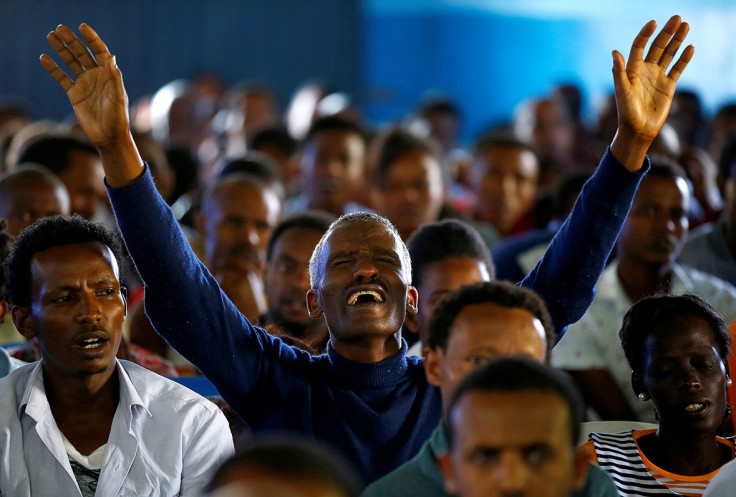Ethiopia should allow protests says German Chancellor Angela Merkel
Merkel says Ethiopia should listen to people's grievances as right groups claim at least 500 have been killed.
German Chancellor Angela Merkel has said Ethiopia should allow protests in the country and the response of security forces should be proportionate. Merkel made the comment during an official visit in Ethiopia, marred by widespread anti-government protests in the Oromia and Amhara regions.
The country recently declared a six-month-long state of emergency as violence is intensifying. On 10 October, the European Union (EU) called for dialogue with Ethiopia.
"I made the case that you should have open talks with people who have problems," Merkel told Prime Minister Hailemariam Desalegn, according to news agency Reuters.
"In a democracy there always needs to be an opposition that has a voice – in the best case in parliament," she added, referring to the fact that opposition parties in Ethiopia failed to win any seat in parliament in the 2015 election.
The opposition claimed the election was rigged, but the government rejected the accusations. Ethiopia's President Mulatu Teshome recently called for an amendment to the election law in order to allow "alternative voices" to be heard and represented.
In response to Merkel's claims, Desalegn claimed the government was not using extreme violence. "If it happened, we will investigate the units involved," the prime minister responded.
Rights groups claimed security forces have killed at least 500 people since protests erupted in November 2015.
Ethiopia has always rejected these figures claiming that people who perished during protests were killed by "anti-peace" forces. Authorities recently blamed forces in Egypt and Eritrea for the ongoing unrest.

Protests in Oromia and Amhara
Demonstrators first took to the streets of Oromia in November 2015 to voice their dissent against a government draft plan that aimed to expand the boundaries of the capital Addis Ababa.
They argued the so-called "Addis Ababa master plan" would lead to the forced evictions of Oromo farmers and would undermine the survival of the Oromo culture and language.
Ethiopia's largest ethnic groups
Who are the Amhara people involved in anti-government protests?
The Ethiopian government scrapped the master plan, following increasing agitation. Protests are continuing, with people calling for self-rule, the liberation of political prisoners and the end of what they perceive to be a military regime in the region. This includes an end to an alleged crackdown by security forces on "peaceful and unarmed" demonstrators, mainly students and farmers.
Human Rights Watch (HRW) and other rights groups claimed security forces killed at least 100 people in the Amhara region during anti-government protests held in August. The government denied the allegations of violence. Protests erupted in Amhara after thousands took to the streets of Gondar and Bahir Dar to protest over the administration of disputed territories.
Members of the Welkait Tegede community demanded their lands be administered by the Amhara region, instead of the Tigray state.
Protesters, who identify themselves as ethnic Amhara – Ethiopia's second largest group – clashed with police during the demonstrations, labelled as the biggest anti-government unrest Ethiopia has witnessed in recent history.
On Monday, president Teshome told parliament, where no opposition party is represented, that the electoral system needs to be altered so that non-government MPs are elected.
© Copyright IBTimes 2025. All rights reserved.






















